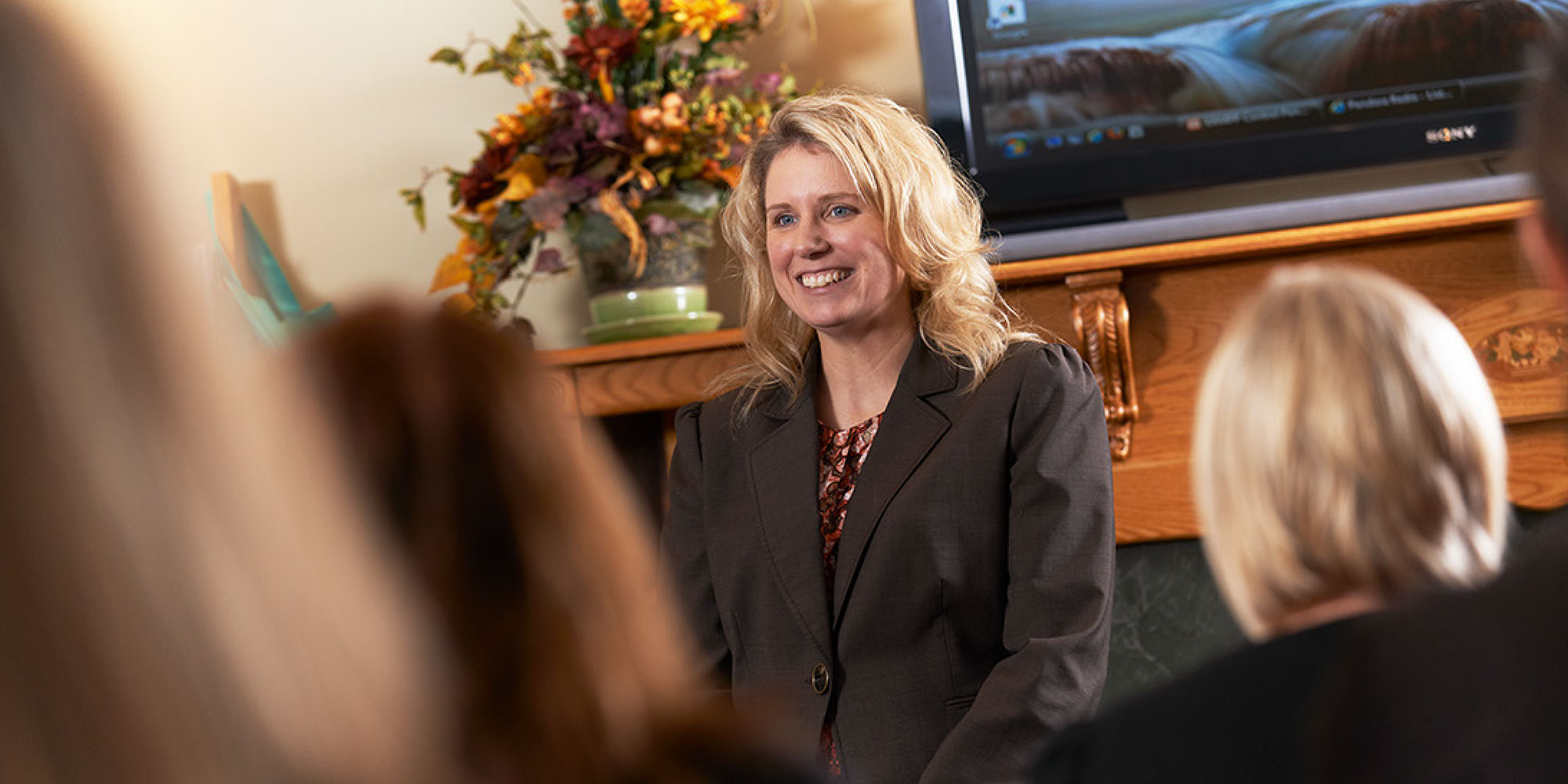The legal field has become a lot like the medical field in that more and more legal practitioners are specializing in a certain area of the law. Steinbacher, Goodall & Yurchak is known in the community as an elder care law firm, but elder law is a type of the law that is very expansive. It could include anything from basic estate planning documents, long-term planning, oil and gas lease planning, and business succession planning. In our opinion elder law means planning for the second half of life.
A lot of what we do revolves around trusts. We love trusts, and are really comfortable with trusts. Trusts can be an essential tool for elder law care and estate planning. Part of our job as an elder care law firm is to review trusts that clients may have executed prior to engaging our law firm to determine if the trust is needed, and if so, are any changes needed in order to plan for the second half of life. Occasionally, a client will come to our office with a testamentary trust created through the provisions of their Last Will and Testament.
A testamentary trust is one that is created through a Last Will and Testament. It provides for the distribution of all or part of the estate. Because a testamentary trust is created upon death, the person cannot fund the testamentary trust during life. On the other hand, an inter vivos trust is one that is created by someone during their life. Assets can be transferred to an inter vivos trust during life or upon death. For example, a Last Will and Testament can provide that certain assets pay to the inter vivos trust.
Our office prefers using an inter vivos trust instead of a testamentary trust. Here are nine things to know about the difference between testamentary trusts and inter vivos trusts:
- A testamentary trust is only created when the testator or testatrix, the individual that executed the Last Will and Testament, dies. A testamentary trust offers no benefit to the testator or testatrix during his or her life. The individual who creates the inter vivos trust, the grantor, can transfer assets to the inter vivos trust during life and use the trust while living.
- A testamentary trust is irrevocable, so the only way the terms of the trust can be changed is to execute a new Last Will and Testament. An inter vivos trust can be revocable or irrevocable depending on what you want to accomplish. A revocable inter vivos trust can be changed at any time without having to execute a new Last Will and Testament. The grantor of an irrevocable inter vivos trust may have the ability to add or remove beneficiaries depending on the provisions of the trust.
- A testamentary trust is subject to the Pennsylvania probate process, and is under court supervision. In order to establish the testamentary trust, the decedent’s Last Will and Testament needs to be admitted to probate. An inter vivos trust is a contract between private parties and does not require ongoing court supervision. If the inter vivos trust is funded by assets through the Last Will and Testament, those assets do have to be probated. If the inter vivos trust is funded during life, however, those assets do not need to be probated.
- A testamentary trust does not include provisions regarding disability since it is not created until the testator dies. An inter vivos trust can be privately managed without any court involvement if the trust creator, the grantor, becomes disabled. All inter vivos trusts our office drafts provides for a successor trustee to manage the trust if the grantor becomes incapacitated.
- Testamentary trusts are frequently used for families with underage children, but Pennsylvania does allow an individual to establish a Uniform Transfers to Minors Act (UTMA) account for anyone under the age of 25. This allows the testator or testatrix under the Last Will and Testament to appoint a custodian for any beneficiary under the age of 25. That custodian holds those assets for the benefit of that underage beneficiary until that individual attains age 25. At age 25, the funds are transferred to that beneficiary. The beneficiary has guidance until attaining a more mature age without the hassle of administering a testamentary trust.
- Because a testamentary trust is part of the Last Will and Testament, it typically contains only the essential provisions and relies on the Pennsylvania Uniform Trust Act to provide the rest of the provisions for the trust. The issue with that is that you don’t know what the Pennsylvania Uniform Trust Act is going to be at the time of your death. When you create an inter vivos trust, you can provide for all of the situations you want, and you are not stuck with default trust provisions that you don’t know. You will know what those provisions are at the time you create the trust and won’t have to guess.
- Typically a testamentary trust is in existence as long as the provisions included in the Last Will and Testament specify (for example, until the child is age 25) or until someone petitions the court to terminate the trust because it is no longer economically feasible. An inter vivos trust can provide an internal mechanism under which the trust can be terminated without court involvement. This is especially important when you don’t know what the future holds.
- A lot of the testamentary trusts we review were created under Last Will and Testaments executed prior to the medicare surtax and the graduated trust tax rates. Because these trusts are irrevocable, non-grantor trusts they could be subject to the highest income tax rate of 39.6% and the net investment income surtax of 3.8% since the legal professional who prepared those documents weren’t considering the changes in the tax law. Under the inter vivos trust, you have the freedom to expand on those provisions of the trust because you don’t need to be as concerned with the length of the trust document since it may not need to be admitted to court as part of the probate process if you properly fund it.
- Creating an inter vivos trust makes it much easier to designate it as the beneficiary of life insurance policies or retirement accounts because the trust is already in existence. Additionally, in order to stretch out the required minimum distribution over the life expectancy of a trust beneficiary, certain trust provisions are required. You can ensure that the provisions of the inter vivos trust will achieve the trust out while you are living instead of waiting until you pass away to ensure that.
Just like two doctors might have two different treatment plans for the same diagnosis, two types of attorneys may use different tools to achieve a successful estate plan for the same client. Our goal at Steinbacher, Goodall & Yurchak is to ensure that you have the best plan for the second half of life. The best way for us to do that is to know what trust laws we are dealing with and customize the trust provisions to meet your specific needs. Considering the differences between testamentary trusts and inter vivos trusts that are outlined in this article, we feel more comfortable using inter vivos trusts instead of testamentary trusts. We know what the trust law is today so we can prepare a trust to achieve maximum benefit for each client as they plan for the second half of life.








Get the answers you need
Question or CommentDo you need assistance finding the information you need? Have a comment about our website or services? Click the button below to send us an email! We're always happy to help.